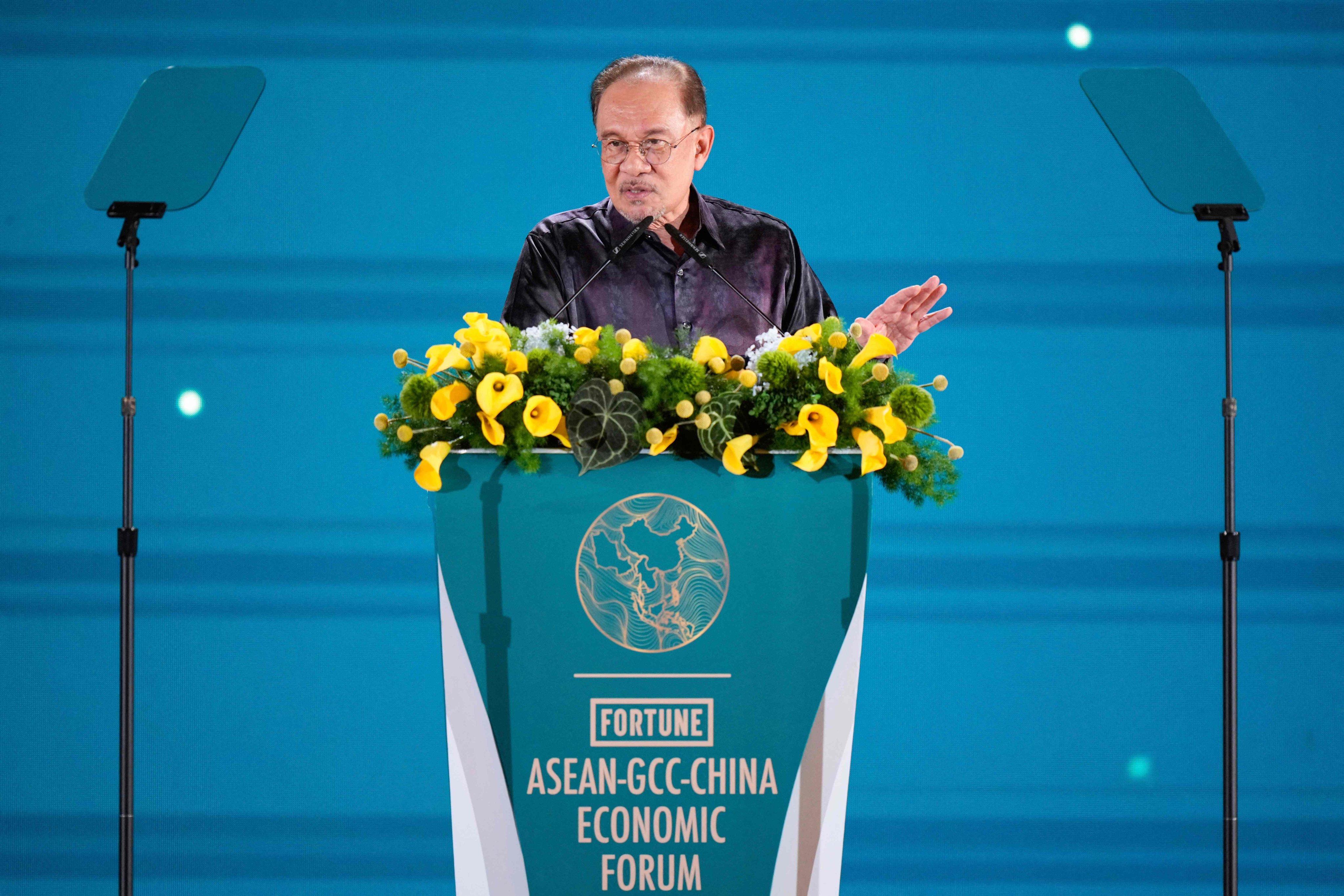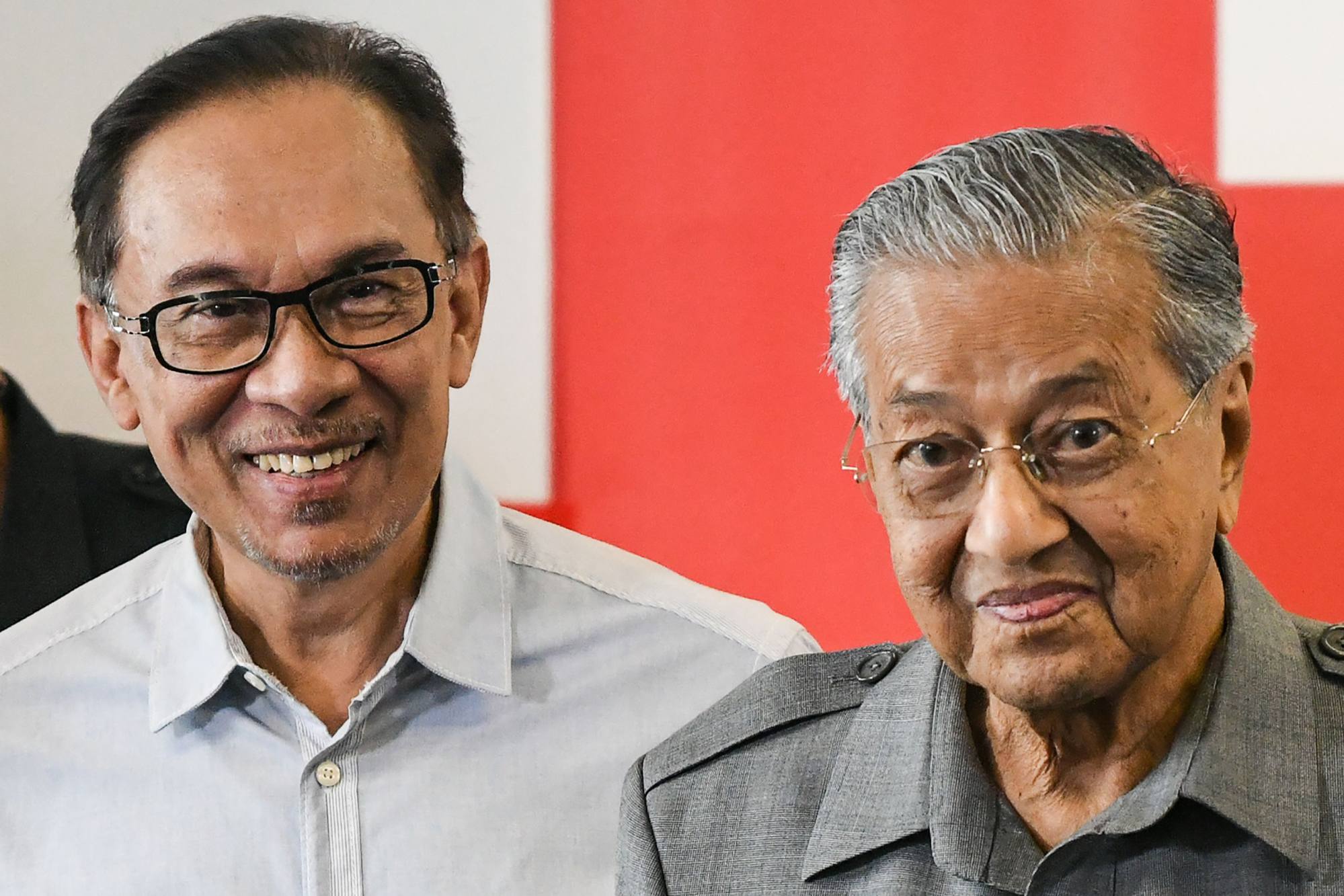Anwar’s cabinet chaos: what double resignations mean for Malaysia
PM Anwar faces political turmoil as key ministers resign over nepotism claims from his daughter’s rise, threatening PKR unity ahead of crucial Sabah elections

Malaysian Prime Minister Anwar Ibrahim went into damage control on Thursday as he digested the departure of two key ministers who quit the cabinet after his party voted to elevate his daughter to the role of deputy and his de facto successor.
To control the narrative surrounding the walkouts, Anwar stated that he has not accepted the resignations of Economy Minister Rafizi Ramli and Environment Minister Nik Nazmi Nik Ahmad, instead allowing them to take time off.
Speaking to reporters on Thursday, the prime minister brushed aside questions of a cabinet reshuffle, saying the two portfolios are still filled.
“They are still on leave. We cannot replace ministers who are currently on leave,” he said.
But the resignations – choreographed within hours of each other – appear to be a done deal, with experts suggesting they pose the biggest challenge to Anwar’s administration, potentially destabilising it ahead of the next general election.
Rafizi said he will be on leave until June 17 while Nik Nazmi until July 3, with both vacating their respective offices last night.
The resignations came just a day after Anwar hosted leaders of the Association of Southeast Asian Nations (Asean), Gulf nations and Chinese Premier Li Qiang in Kuala Lumpur.

Rafizi, a firebrand reformist whose appeal crosses ethnic lines, threatened to resign from cabinet if he lost the party’s deputy presidency to Nurul Izzah Anwar, the prime minister’s eldest daughter.
His ally, Nik Nazmi, also lost the PKR vice presidency contest.
Anwar, however, responded by saying he would not stop Rafizi – or anyone – from resigning, but dismissed the threat as “just talk”.
Tunku Mohar Mokhtar of the International Islamic University Malaysia said Anwar’s careful wording suggests he may try to persuade the ministers back.
“It is his way of saying that he is still in charge,” Tunku Mohar said.
While Anwar maintained a formal distance from the party contest that promoted his daughter, his senior political secretary openly supported Nurul Izzah, even suggesting that Rafizi was detrimental to the party.
“Anwar may not have expected Rafizi’s loss to polarise the party,” Tunku Mohar said.

Eyes on Sabah
On Malaysia’s raucous social media platforms, users expressed frustration at Rafizi’s defeat and the apparent nepotism that led to Nurul Izzah being first in line to replace Anwar.
“Urban voters, Malays and non-Malays alike, seem to sympathise with Rafizi and believe he was treated unfairly by his own party,” Tunku Mohar said.
“The party election did not strengthen PKR – it has further weakened it.”
For many outside the party, recent events echo Anwar’s own split with his former mentor Mahathir Mohamad in 1998.
The then deputy prime minister – and Mahathir’s number two in Umno – was expelled following a combination of political disagreements and allegations of misconduct.
Anwar’s dismissal triggered the Reformasi movement, sparking street protests and clashes with riot police, even as Malaysia – and Mahathir – basked in the pride of hosting the Commonwealth Games while grappling with the aftermath of the 1997 Asian financial crisis.

Across the country, questions are mounting if the Anwar-Rafizi fallout could escalate and fracture PKR, in a country where political schisms are common.
A source close to Rafizi told This Week in Asia he had no intention of “dragging the country through another 1998,” and will instead focus on preparing for the next general election, due by early 2028. Rafizi however, has hinted that he will be more blunt with his criticism once he is no longer burdened with being a cabinet member.
“I would be happier as my hands and mouth would no longer be tied,” Rafizi said on May 12.
Political analyst James Chin said the prime minister must reconcile with Rafizi and Nik Nazmi to unify the party ahead of a crucial state election in Sabah, expected by year’s end.
In Malaysian politics, it is customary for the ruling party’s deputy president to lead election campaigns, a responsibility now held by Nurul Izzah Anwar.
“The situation is very dangerous for PKR, as Nurul Izzah’s first test is the Sabah election,” Chin said.
“The more splintered the party, the greater the impact on their electoral performance.”
Nurul Izzah’s leadership is already facing pushback from Sabah political leaders, who accuse her of treating the state election as a proving ground for her “outside political machinery”.
Like its neighbouring state, Sarawak, Sabah – located in the Malaysian part of Borneo – holds autonomous status and a distinct political identity. Many in the state view national-level parties from Peninsular Malaysia as outsiders encroaching on local governance.
“Sabah is not a political laboratory for Peninsular parties,” the Chief Information Officer of Sabah’s Star party, Anuar Ghani said on Sunday.
“Sending in outside machinery shows a lack of sensitivity and reinforces the perception that national parties continue to undermine local leadership.”

Chin said that if Nurul Izzah fails in Sabah, it will reinforce the public’s criticism of nepotism within PKR.
“If she does a terrible job, people will use this to double down their attacks on her as a clear case of nepotism, so she has to deliver,” he said.
The drama has left many questioning the fate of policies championed by Rafizi and Nik Nazmi, including a progressive wage bill and the politically sensitive plan to remove fuel subsidies.
“Any change in the minister raises the question of policy continuity – and if some policies introduced by the previous minister are going to be continued,” said Harris Zainul, the Director of Research at ISIS Malaysia.
“We should not let this distract us from the tangible cost of policy delays.”